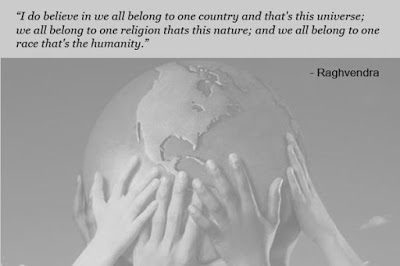According to my records, with this piece, I am starting my seventh year of coming to tell and listen to stories on Monday afternoon.
It seems odd to think about hope in this grim start to what may be a long and grim year of frustration, setbacks and bad news. This is not a very hopeful time we live in. But maybe this is when we most need to remind ourselves that hope is possible, hope is what keeps us going, hope is what gets us out of bed each morning. And hope, no matter how irrational, is good to have.
So, my hope for the lesbian, gay and trans community is that we learn to turn to each other more for joy and less out of necessity. I know that fearsome problems still haunt our world and community. Violence and bullying is a daily fact for many of our youth. Discrimination still runs rampant in many areas. Determined gay-haters, like the soon to be vice-president of the United States, persist in their work to undo the dignity and security of LGBT lives and generate hostility toward us. There is still plenty of inequality and prejudice out there.
But in many ways, our world is getting less frightening and our grasp on basic rights is growing more secure. It is no longer acceptable to openly degrade gay people—which is why our enemies have to resort to ever greater subterfuges to try to harass us. They’ve lost the sanctity of marriage so now they are reduced to fighting for the sanctity of toilets and who shall be allowed to do their business in which ones.
We still have battles to fight, but my hope is that we will seek out each other’s company less out of a sense of a need for protection, less out of desperation, and more because we just want to be around other L, G, B and T people. We come together not so much because we need to seek shelter in a hostile world but more because we can best express ourselves with each other.
I have many non-gay friends and love them dearly. It’s not that I sense any barriers between us. Yet, there is still more I sense in sharing with queer folk. We share experiences that we’ve all known and don’t have to explain. We share a humor derived from being outsiders. We share spiritualities, arts and a sharp sense of just what community is—or is not. We have been forced to make up our own culture and so we have. We are different and we should relish opportunities to engage those differences.
Most of us come out of a time when lesbians and gays could never take anything for granted. And we shouldn’t. Above all, we shouldn’t take each other for granted. You can find very fulfilling relationships with non-gay people but I do believe that there is one thing we can find only with our own kind—happiness. I do hope that organizations such as the community center we are in continue to thrive—not out of fear and self-defense but from joy. We still need to find each other. I hope that we continue to come here because we want to, not because we have to.
Even in a world more tolerant and open, there is still that special depth of connection that we get to see only in each other. Call it love or desire or a magical ability to coordinate colors and a flare for decorating, you won’t find it outside. You may be welcome to watch football games with legions of Broncos fans, but you won’t get much of a response by commenting that Eli Manning is so much better looking than his brother Peyton. They just don’t get it.
© 8 Jan 2017
[Editor’s note: This was first published last year. It still seems so pertinent. Enjoy and be moved.]
About the Author
Nicholas grew up in Cleveland, then grew up in San Francisco, and is now growing up in Denver. He retired from work with non-profits in 2009 and now bicycles, gardens, cooks, does yoga, writes stories, and loves to go out for coffee.




